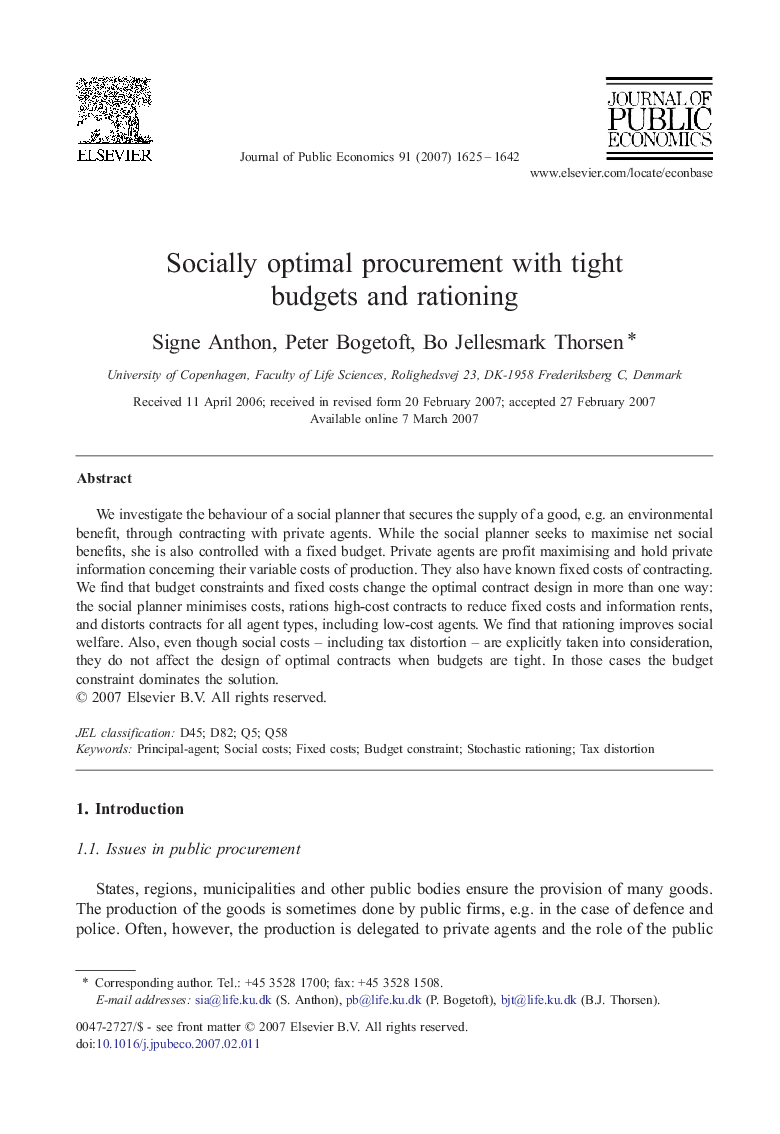| Article ID | Journal | Published Year | Pages | File Type |
|---|---|---|---|---|
| 969516 | Journal of Public Economics | 2007 | 18 Pages |
We investigate the behaviour of a social planner that secures the supply of a good, e.g. an environmental benefit, through contracting with private agents. While the social planner seeks to maximise net social benefits, she is also controlled with a fixed budget. Private agents are profit maximising and hold private information concerning their variable costs of production. They also have known fixed costs of contracting. We find that budget constraints and fixed costs change the optimal contract design in more than one way: the social planner minimises costs, rations high-cost contracts to reduce fixed costs and information rents, and distorts contracts for all agent types, including low-cost agents. We find that rationing improves social welfare. Also, even though social costs – including tax distortion – are explicitly taken into consideration, they do not affect the design of optimal contracts when budgets are tight. In those cases the budget constraint dominates the solution.
